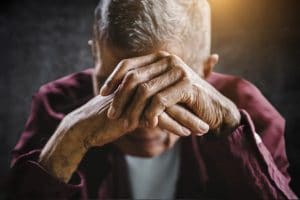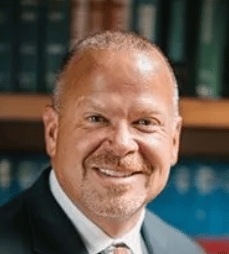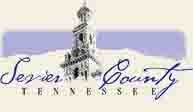 Elder abuse is far more common than any of us like to think. Sending mom or dad to live in an assisted care facility is one of the most difficult decisions adults can face, but not everyone is financially, psychologically or physically capable of providing the level of care an aging parent can require. Making the decision is one thing, but our responsibility to our elders doesn’t stop at the door – ensuring their health and safety is critical, especially in situations involving dementia or a decline in mental health.
Elder abuse is far more common than any of us like to think. Sending mom or dad to live in an assisted care facility is one of the most difficult decisions adults can face, but not everyone is financially, psychologically or physically capable of providing the level of care an aging parent can require. Making the decision is one thing, but our responsibility to our elders doesn’t stop at the door – ensuring their health and safety is critical, especially in situations involving dementia or a decline in mental health.
The best facilities in the world can’t guarantee that patients (or residents) will never suffer from incidents of elder abuse. Even minor interactions may psychologically or emotionally impact elderly residents. The National Center on Elder Abuse (NCEA) has conducted studies and compiled statistics on the most common forms and perpetrators of elder abuse. According to their research, financial abuse is the most commonly reported form of elder abuse.
The operative word there is “reported.” Elder abuse takes many forms, and direct victims often fear reprisal from perpetrators. In cases where some form of dementia is present, some victims may not be able to recall specific details or offer a coherent account of their experiences. In these situations, patient advocacy is unfortunately in the hands of family and friends. Unfortunately, even when the signs of abuse are present, it can be difficult to acknowledge and, in some cases, extremely difficult to prove.
The NCEA is an excellent resource for learning about the signs of elder abuse and what to do when you suspect a loved one is a victim. However, a recent investigation by The New York Times has uncovered some disturbing information. The article, titled Phony Diagnoses Hide High Rates of Drugging at Nursing Homes, found that a significant percentage of nursing home residents are prescribed antipsychotic drugs as a form of “chemical restraint.”
Are antipsychotics dangerous?
Antipsychotics can have many side effects, and healthcare providers have a duty of care to closely monitor patients who are prescribed them. The article explains:
The risks to patients treated with antipsychotics are so high that nursing homes must report to the government how many of their residents are on these potent medications. But there is an important caveat: The government doesn’t publicly divulge the use of antipsychotics given to residents with schizophrenia [Tourette’s syndrome and Huntington’s disease].
In short, nursing home prescriptions of certain drugs are a matter of public record, except when those prescriptions are written for those with certain conditions in accordance with the Health Insurance Portability and Accountability Act of 1996, better known as HIPAA. According to the article, doctors are making false diagnoses of psychiatric conditions to hide the fact that nursing homes are sedating restless residents. This isn’t just unethical; it’s blatantly illegal.
However, thanks to the efforts of investigative journalists, we now know just how widespread this dangerous practice has become. Through an analysis of Medicare data, reporters found that around 11.1% of nursing home residents has received a diagnosis for schizophrenia. For comparison, around 0.6% of the US population suffers from this primarily genetic condition.
That’s a staggering increase in numbers. In fact, if these numbers were accurate, we would need to believe that nursing homes have an incidence of schizophrenia that’s 1,750% higher than the rest of the population. While it’s true that the elderly are more susceptible to certain conditions, they’re not 1,750 times more likely to suffer from a primarily genetic neurological disorder.
In total, the Times found that at least 21% of nursing home residents across the country are currently prescribed antipsychotics. That’s a minimum of 225,000 people on these dangerous drugs, the majority of whom likely don’t require this type of medication. This a big problem, to say the least. What’s more, it’s not confined to a specific area or even certain type of a facility. To reinforce the point that facility quality scores don’t guarantee resident safety, the article reports:
False schizophrenia diagnoses are not confined to low-rated homes. In May, the inspector general of the Department of Health and Human Services, for example, identified 52 nursing homes where at least 20 percent of all residents had an unsupported diagnosis. Medicare rated more than half of those homes with at least four of the maximum five stars. (The inspector general’s report didn’t identify the nursing homes. The Times obtained their identities through a public-records request.)
Loopholes don’t excuse negligence
Daybreak Venture, a Texas-based company that operates seven of the 52 facilities identified, has zero (officially, zero percent) long-term residents who are currently prescribed antipsychotics. At one of their facilities, the actual number of patients receiving these dangerous drugs was nearly 40%. This is an egregious circumvention of the rules made possible by unscrupulous healthcare providers who have collectively flagrantly violated their oaths and duties of care.
How can you know if your loved one has fallen prey to this nefarious scheme? First and foremost, antipsychotic drugs are not like other types of drugs. Generally speaking, this class of drug isn’t fast-acting, and effects don’t diminish quickly. The effects (and side effects) are cumulative, in that minor symptoms like lethargy tend to get worse with time. In fact, these drugs are so potent that federal guidelines require nursing homes to gradually reduce doses over time.
If you suspect that your senior loved one has been the victim of abuse in a nursing home or other healthcare facility, the experienced Sevierville nursing home abuse and personal injury attorneys at Delius & McKenzie, PLLC are here to help. To schedule a no-obligation consultation with one of our attorneys, call our offices at 865-428-8780 or fill our contact form to schedule a confidential appointment at your convenience. We proudly serve those in and around Sevierville, Seymour, Gatlinburg and Pigeon Forge.

Attorney Bryan E. Delius was born and raised in Sevier County, TN. He founded Delius & McKenzie more than 20 years ago, after receiving his JD from the University of Tennessee at Knoxville. He is admitted in Tennessee and in several federal court systems. Learn more about Bryan E. Delius.




